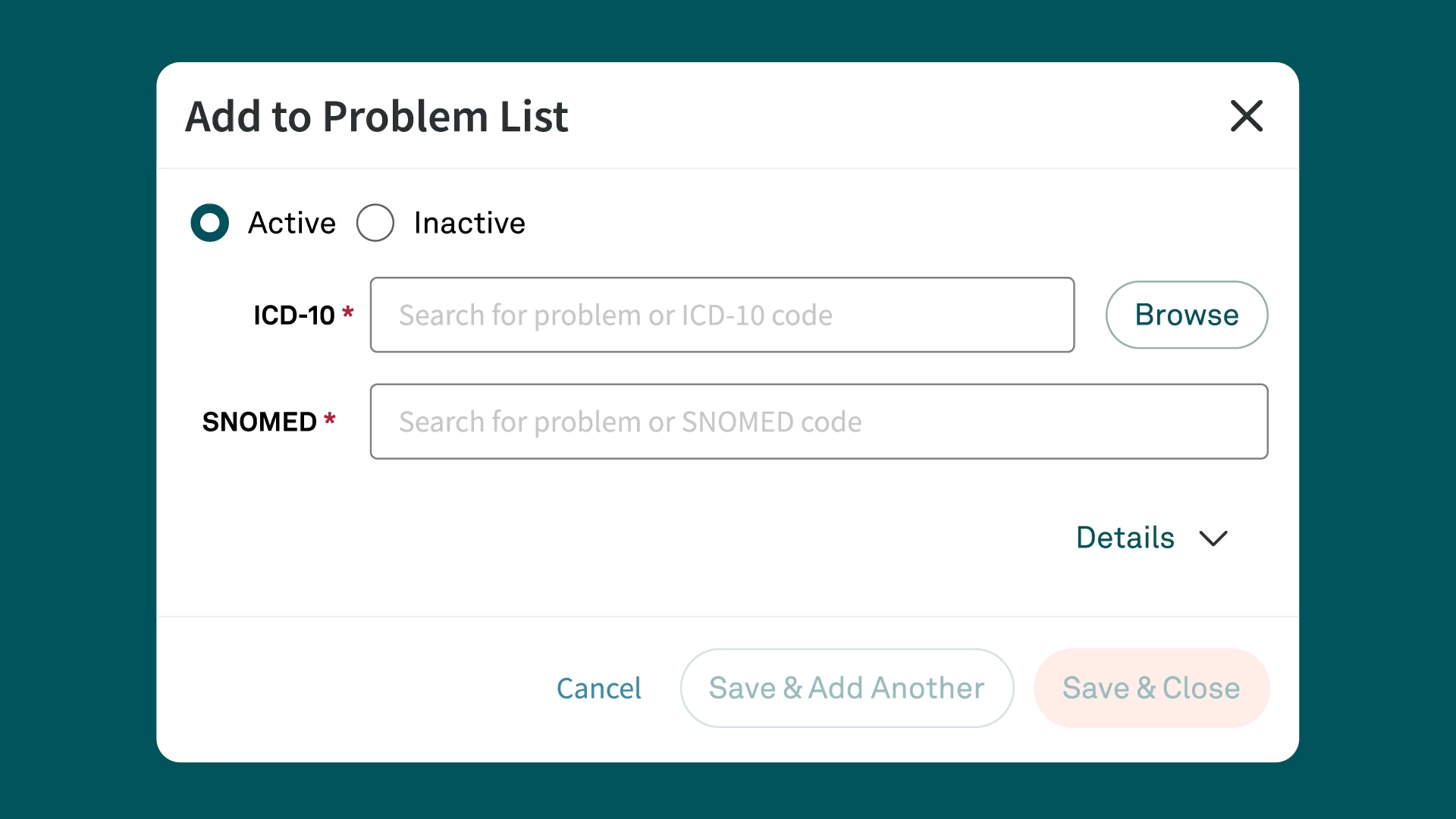ICD-10 Code F33.1
Major depressive disorder, recurrent, moderate
What is the code F33.1?
F33.1 is a billable/specific ICD-10-CM code that refers to "major depressive disorder, recurrent, moderate." It is part of the chapter on mental, behavioral, and neurodevelopmental disorders (F01–F99), specifically under category F33 major depressive disorder, recurrent. This code is used for clinical diagnosis and billing purposes.
Detailed description of F33.1
The diagnosis coded as F33.1 indicates that a patient is experiencing a recurrent episode of moderate major depressive disorder. Using this code indicates that the individual has had previous episodes of depression, and the current episode is characterized by moderate severity, which affects daily functioning but is not as incapacitating as severe depression.
Symptoms commonly associated with F33.1
Patients diagnosed with F33.1 typically exhibit symptoms that significantly impact daily life but do not lead to a complete cessation of personal and professional activities. These symptoms include:
- Persistent sad, anxious, or "empty" mood
- Feelings of hopelessness or pessimism
- Irritability
- Loss of interest or pleasure in hobbies and activities
- Decreased energy or fatigue
- Moving or talking more slowly
- Feeling restless or having trouble sitting still
- Difficulty concentrating, remembering, or making decisions
- Sleep disturbances
- Appetite and/or weight changes
- Thoughts of death or suicide, or suicide attempts
- Aches or pains, headaches, cramps, or digestive problems without a clear physical cause and/or that do not ease even with treatment
Related and similar ICD-10-CM codes
Related codes within the ICD-10-CM system that address different aspects or severities of depressive disorders include:
Appropriate usage of F33.1 for billing
F33.1 should be used for billing purposes when a provider includes in their assessment that a patient has been diagnosed with a moderate episode of recurrent major depressive disorder. It is encouraged that providers, in the assessment portion of their note, clearly reflect the recurrent nature of the disorder and the moderate severity of the current episode to justify the use of this specific code.
Instructional guidelines for physicians/providers coding F33.1
When using F33.1, it's beneficial from a treatment standpoint to document the patient's full clinical picture, including the frequency and duration of depressive episodes and any treatment responses — though it is unnecessary for reporting purposes. Providers and coders should carefully distinguish this code from others that describe different severities or complications of depressive episodes.
Category F33, Major depressive disorder, recurrent, has an "excludes 1" note for "bipolar disorder (F31-).” When both bipolar disorder and major depressive disorder, recurrent moderate, have been diagnosed, assign only the code for bipolar disorder (F31-). A code for major depression would not be reported separately.
Common pitfalls in coding with F33.1
- Misclassification of the severity of the episode can lead to inappropriate treatment plans. For instance, using F33.1 for a severe depressive episode might result in insufficient care.
- Failing to document the recurrent nature of the disorder could impact the accuracy of the medical records and subsequent treatment approaches.
Key resources for F33.1 coding
- CMS ICD-10 Homepage: Provides coding updates and guidelines.
- WHO ICD-10 Online Browser: Allows for precise verification of codes and understanding of the criteria associated with each code.
Conclusion
The ICD-10-CM code F33.1 is used to identify and manage cases of moderate recurrent major depressive disorder. Proper application of this code supports effective treatment planning and appropriate billing, facilitating better patient outcomes and compliance with healthcare reporting requirements.
Simplify ICD-10 code documentation with Tebra
Tebra’s EHR+ gives you quick searches and Systematized Nomenclature of Medicine (SNOMED) field names for efficient code documentation. Plus, Tebra automatically saves ICD-10 to SNOMED mapping for future searches, streamlining your workflow.

Discover how Tebra helps providers effortlessly document health-related issues and conditions in this detailed post.
Similar Codes
Subscribe to The Intake:
A weekly check-up for your independent practice



